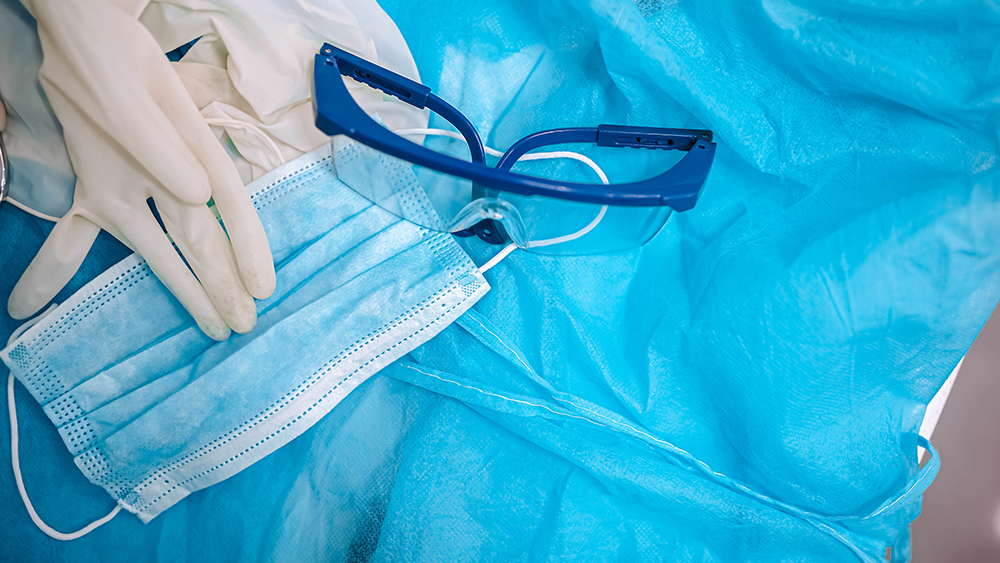Abbott Labs’ five-minute coronavirus test misses HALF of positive cases
05/14/2020 / By Franz Walker

Abbott Laboratories’ ID NOW coronavirus (COVID-19) test can miss up to half of all positive cases, a new study suggests. The rapid coronavirus test was previously hailed for being able to detect a positive result in just five minutes and has been used to diagnose people in the White House.
The New York University (NYU) study, published on pre-print site BioRxiv, found that Abbott’s test kit missed one-third of coronavirus samples collected with nasopharyngeal swabs that tested positive using other kits. On samples taken using dry nasal swabs, the ID NOW test kits missed 48 percent of positive results. Both nasopharyngeal and dry nasal swabs samples are taken from the nostril, but the former is inserted much deeper into the nose.
ID NOW misses cases that other tests detect
For the study, researchers from NYU obtained samples from patients at NYU Langone Medical Center. They compared Abbott’s tests against the Xpert Xpress, a rival kit produced by molecular diagnostics company Cepheid Inc., which claims to return positive results in just 30 minutes.
The researchers conducted an initial experiment where both the Abbott ID NOW and Cepheid kits were tested on virus samples stored in a solution called viral transport media before they were tested. In this test, Abbot’s test missed one-third of the 15 positive samples. Cepheid’s test, however, identified all the samples as positive. (Related: CDC coronavirus test kits distributed all across America found to produce false negatives due to failed test kit reagents.)
The researchers then conducted a second experiment where the Abbott and Cepheid tests were compared on 101 patients seen in the emergency room. It’s in this test, with nasopharyngeal swabs, that Abbot’s test missed 48 percent of positive cases.
“Regardless of method of collection and sample type, Abbot ID NOW COVID-19 missed a third of the samples detected positive by Cepheid Xpert Xpress when using swabs in [viral transport media] and over 48 percent when using dry nasal swabs,” the authors concluded.
Abbott refutes study
Abbott refuted the NYU study’s claim that their tests were missing nearly half of positive cases. In a series of tweets, the company pointed out that the results of the NYU study were not consistent with those from other studies. Specifically, Abbott pointed to a test in Washington state where their tests detected 91 percent of all positive subjects.
For example, in another recent study in Washington state, out of approximately 1,000 subjects there were 23 positive for COVID-19 on a lab test and ID NOW picked up 21, demonstrating 91% sensitivity and 100% specificity. We have many questions for the NYU study authors. (2/5)
— Abbott (@AbbottNews) May 13, 2020
The company also stated that they believe that the NYU researchers did not use the ID NOW test correctly and that its true false-negative rate was 0.02 percent.
“It’s unclear if the samples were tested correctly in this study,” the company said in a statement to the Daily Mail. “In communications with other users of the test, it is performing as expected.”
Abbott’s tests have already come under scrutiny before. In April, researchers from the Cleveland Clinic tested five commonly used test kits including Abbott’s ID NOW. In these tests, the ID NOW kits positively confirmed the virus in just 85 percent of samples, meaning that it produced false negatives 15 percent of the time.
The FDA has also taken note of the NYU study, with a spokesperson telling NBC News that they were “reviewing the information in this non-peer reviewed study.”
The agency had previously given emergency authorization for the test to be used on March 27.
Since receiving authorization, the ID NOW tests have been touted by President Donald Trump at press briefings and the White House has used it to regularly check officials and screen visitors.
Meanwhile, over a dozen people who work closely with Trump and Vice President Mike Pence have tested positive for the coronavirus in the past several days including 11 Secret Service agents, Pence’s secretary, one of Trump’s valets and Ivanka Trump’s personal assistant.
Learn more about the ongoing outbreak at Pandemic.news.
Sources include:
Tagged Under: abbott laboratories, coronavirus, covid-19, disease, false negative, false negatives, faulty testing, FDA, Flu, NYU, NYU Langone, outbreak, pandemic, testing, White House



















